Entry Database : PDB / ID : 1w1fTitle SH3 DOMAIN OF HUMAN LYN TYROSINE KINASE TYROSINE-PROTEIN KINASE LYN Keywords / / / / Function / homology Function Domain/homology Component
/ / / / / / / / / / / / / / / / / / / / / / / / / / / / / / / / / / / / / / / / / / / / / / / / / / / / / / / / / / / / / / / / / / / / / / / / / / / / / / / / / / / / / / / / / / / / / / / / / / / / / / / / / / / / / / / / / / / / / / / / / / / / / / / / / / / / / / / / / / / / / / / / Biological species HOMO SAPIENS (human)Method / Authors Bauer, F. / Schweimer, K. / Hoffmann, S. / Roesch, P. / Sticht, H. Journal : Protein Sci. / Year : 2005Title : Structural Characterization of Lyn-SH3 Domain in Complex with a Herpesviral Protein Reveals an Extended Recognition Motif that Enhances Binding Affinity.Authors : Bauer, F. / Schweimer, K. / Meiselbach, H. / Hoffmann, S. / Roesch, P. / Sticht, H. History Deposition Jun 17, 2004 Deposition site / Processing site Revision 1.0 Jul 6, 2005 Provider / Type Revision 1.1 May 8, 2011 Group Revision 1.2 Jul 13, 2011 Group Revision 1.3 Jan 15, 2020 Group / Other / Category / pdbx_nmr_softwareItem / _pdbx_nmr_software.nameRevision 1.4 May 15, 2024 Group / Database references / Category / chem_comp_bond / database_2Item / _database_2.pdbx_database_accession
Show all Show less
 Open data
Open data Basic information
Basic information Components
Components Keywords
Keywords Function and homology information
Function and homology information HOMO SAPIENS (human)
HOMO SAPIENS (human) Authors
Authors Citation
Citation Journal: Protein Sci. / Year: 2005
Journal: Protein Sci. / Year: 2005 Structure visualization
Structure visualization Molmil
Molmil Jmol/JSmol
Jmol/JSmol Downloads & links
Downloads & links Download
Download 1w1f.cif.gz
1w1f.cif.gz PDBx/mmCIF format
PDBx/mmCIF format pdb1w1f.ent.gz
pdb1w1f.ent.gz PDB format
PDB format 1w1f.json.gz
1w1f.json.gz PDBx/mmJSON format
PDBx/mmJSON format Other downloads
Other downloads 1w1f_validation.pdf.gz
1w1f_validation.pdf.gz wwPDB validaton report
wwPDB validaton report 1w1f_full_validation.pdf.gz
1w1f_full_validation.pdf.gz 1w1f_validation.xml.gz
1w1f_validation.xml.gz 1w1f_validation.cif.gz
1w1f_validation.cif.gz https://data.pdbj.org/pub/pdb/validation_reports/w1/1w1f
https://data.pdbj.org/pub/pdb/validation_reports/w1/1w1f ftp://data.pdbj.org/pub/pdb/validation_reports/w1/1w1f
ftp://data.pdbj.org/pub/pdb/validation_reports/w1/1w1f Links
Links Assembly
Assembly
 Components
Components HOMO SAPIENS (human) / Plasmid: PGEX-6P-2 / Production host:
HOMO SAPIENS (human) / Plasmid: PGEX-6P-2 / Production host: 
 Sample preparation
Sample preparation Processing
Processing Movie
Movie Controller
Controller





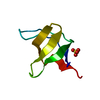

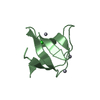

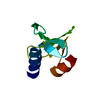


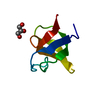
 PDBj
PDBj



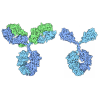





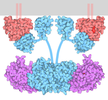

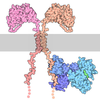


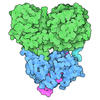





 X-PLOR
X-PLOR